South Korean President Yoon Suk Yeol has declared emergency martial law, marking a significant shift in the country’s political landscape, the first such move since 1987. The declaration comes amid growing tensions between the government and the opposition, which has accused Yoon of authoritarian tendencies. Yoon has cited the opposition’s actions as the primary reason for halting government operations and has vowed to restore a free and democratic nation through martial law.
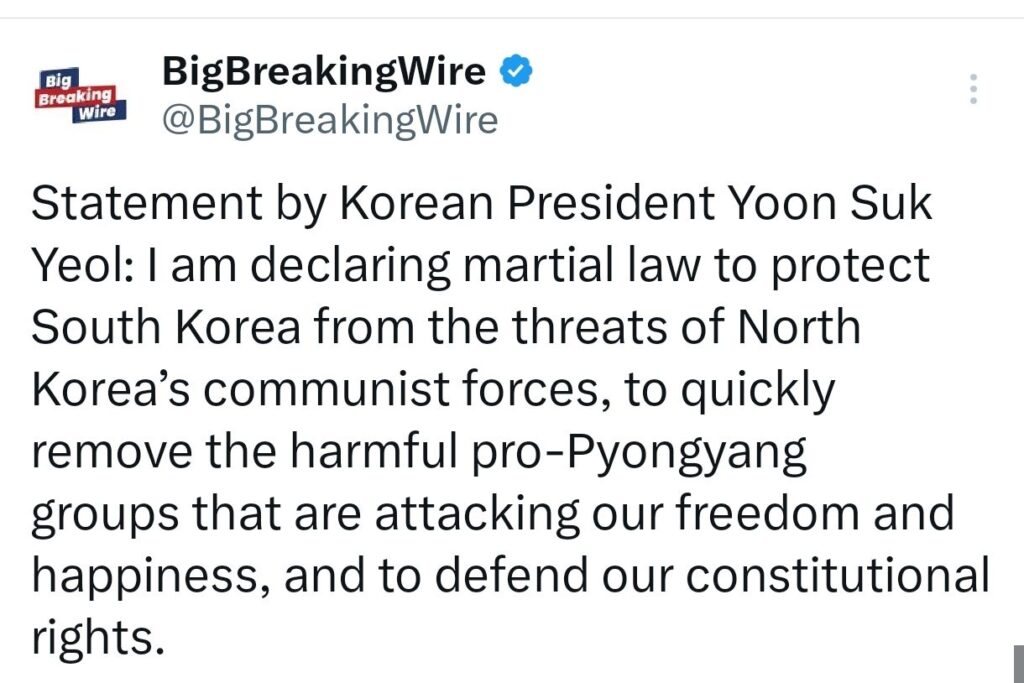
The declaration empowers the military to take control of maintaining public order, a move that may lead to restrictions on civil liberties. This has raised concerns about potential negative effects on democracy and civil rights. The decision follows months of political turmoil, including allegations by the opposition that the government was planning to impose martial law, and leadership changes within the defense ministry.
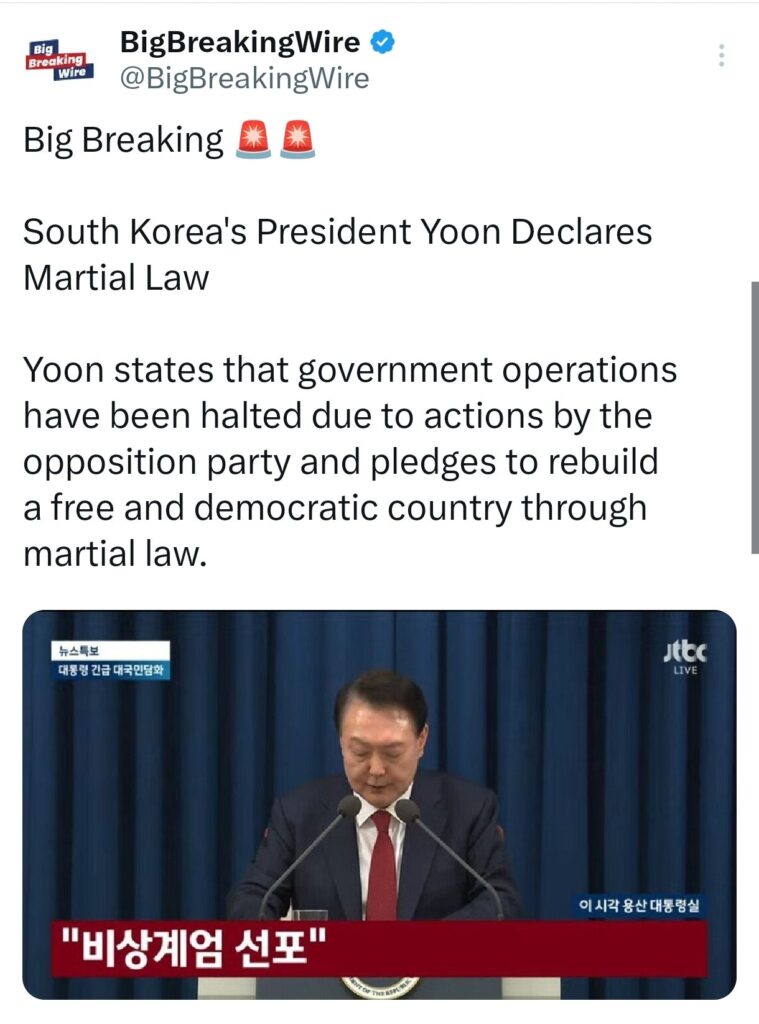
President Yoon has also accused the opposition of engaging in anti-state activities, alleging that their actions pose a threat to national security. He stated that the martial law measures are necessary to eliminate pro-North Korea elements from within the country.
The South Korean won drops nearly 1% to a two-year low of 1419.28 against the dollar, according to LSEG data. The currency continues to weaken, reaching 1,420 per dollar.
Han Dong-hoon, leader of South Korea’s ruling People Power Party, criticizes the declaration of martial law, calling it a mistake and pledging to oppose it, as reported by Yonhap.
The South Korean won extends its losses, trading at 1,430 per dollar.
Access to South Korea’s parliament has been blocked following the president’s declaration of martial law, preventing members from entering, according to Yonhap.
South Korea’s opposition leader, Lee, states that parliament will attempt to nullify Yoon’s martial law, but the military may try to arrest parliamentary members, according to YTN TV.
The entrance to South Korea’s Parliament is blocked, preventing lawmakers from entering, according to Yonhap. The Speaker of Parliament is on their way and plans to hold a session, as reported by YTN TV. Meanwhile, South Korea’s Finance Minister is set to hold a meeting regarding the martial law, also reported by YTN. YTN TV footage shows that police buses are blocking the main entrance to Parliament.
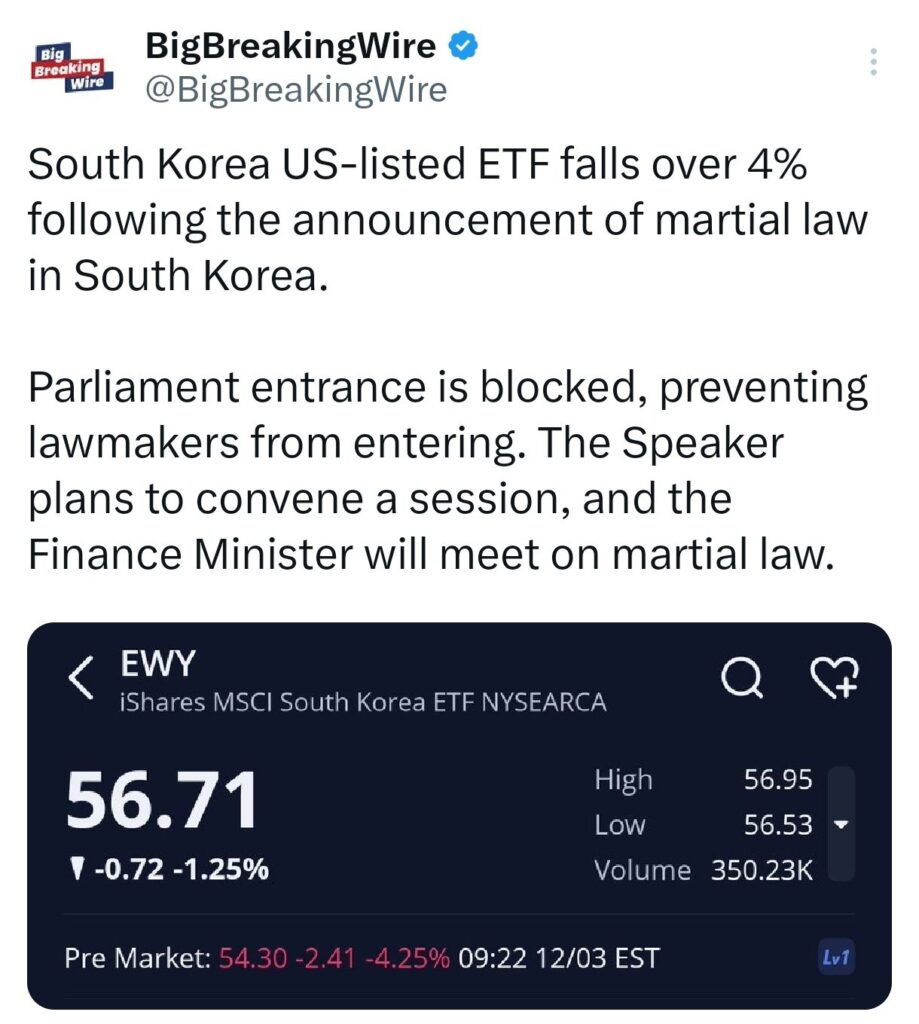
Army General Park An-soo has been appointed as the Martial Law Commander in South Korea. He announced that political activities, including associations, rallies, and demonstrations, are prohibited under Martial Law. Furthermore, he stated that activities of the National Assembly, local councils, and political parties are also banned. In addition, all media and publications will fall under Martial Law control.
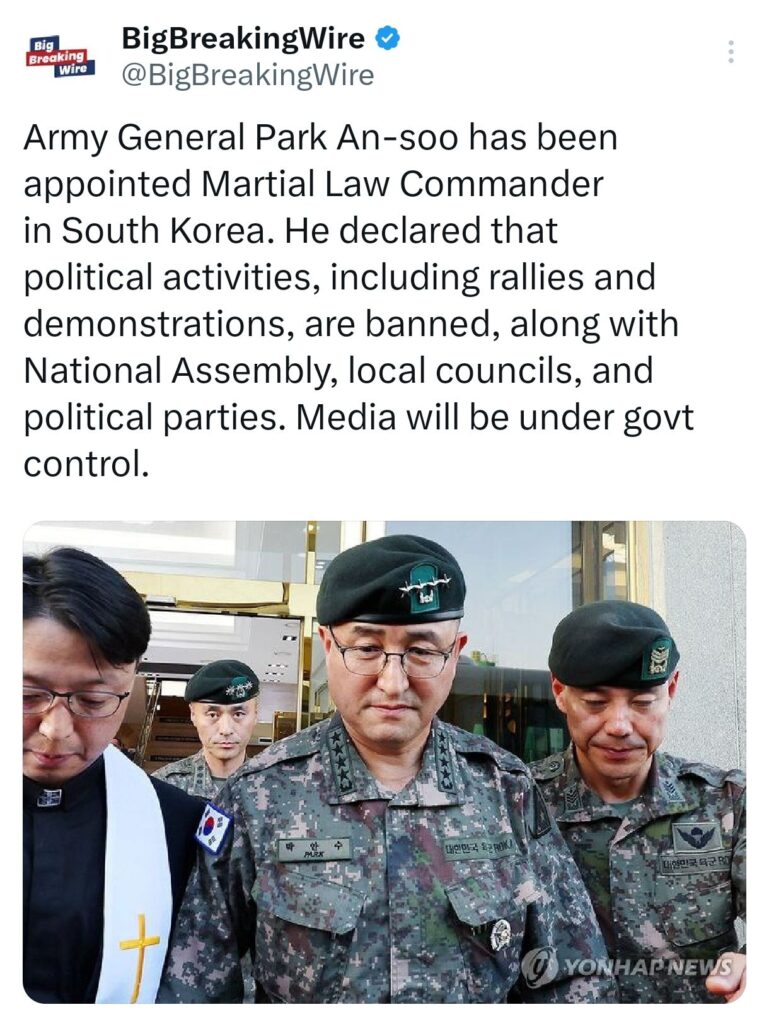
South Korea’s stock market will operate as usual on Wednesday, according to Money Today. The country’s Finance Minister is set to hold a meeting with top economic officials at 11:40 PM KST, as confirmed by a Finance Ministry spokesperson. In addition, a South Korean central bank official stated that preparations are underway to implement necessary measures to stabilize the market if required, with further updates expected following the meeting. However, the Korea Stock Exchange has yet to decide whether the market will open on Wednesday.
Protests erupted outside the National Assembly as demonstrators clashed with security forces, as shown in Video-1. Meanwhile, an Infantry Fighting Vehicle (IFV) was seen stationed in downtown Seoul, South Korea, as depicted in Pic-1.
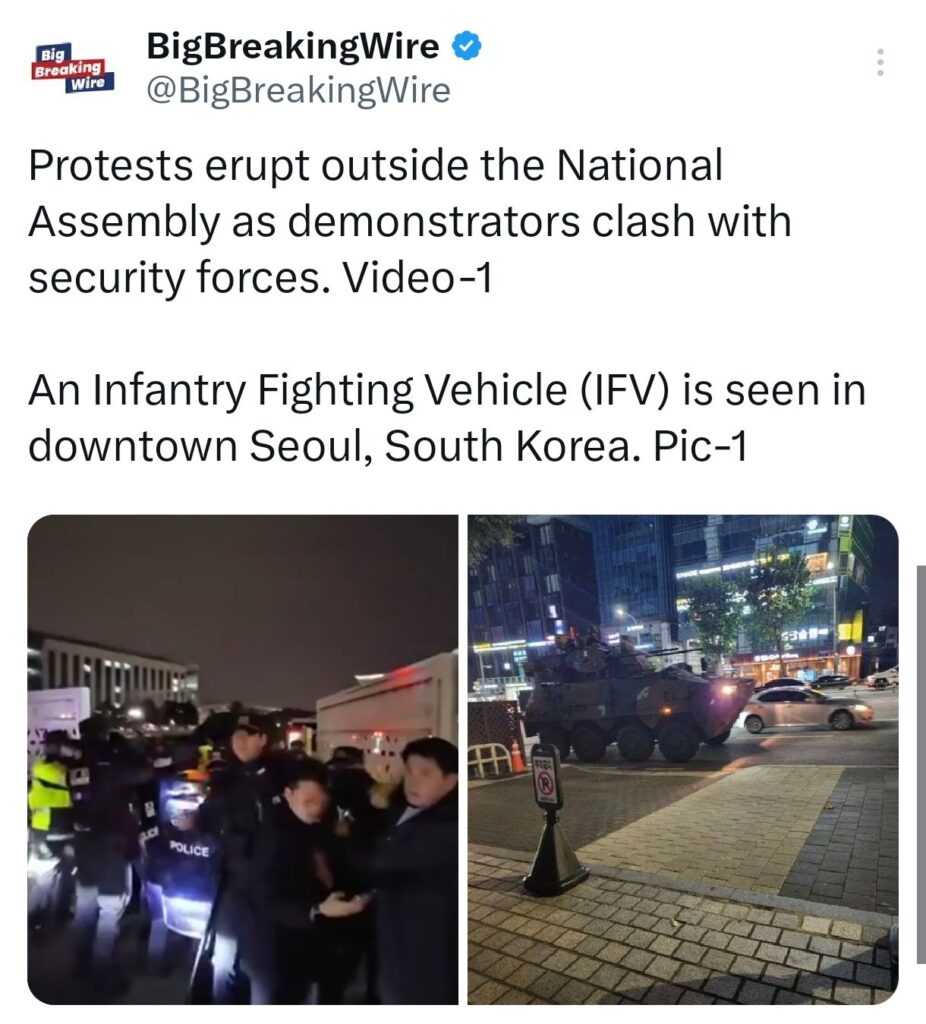
The South Korean military has declared that activities at Parliament and political parties are now banned, according to Yonhap. Additionally, the Martial Law Command has stated that all media outlets and publishers will come under its control.
In another directive, the Martial Law Command has ordered all medical staff, including trainee doctors, to return to work within 48 hours. It also emphasized that anyone violating martial law could be arrested without a warrant.
The Martial Law Decree further instructed authorities to minimize disruptions to the daily lives of the people, except when dealing with anti-regime forces.
South Korea’s opposition leader, Lee Jae-myung, declares that Yoon Suk Yeol is no longer the president.
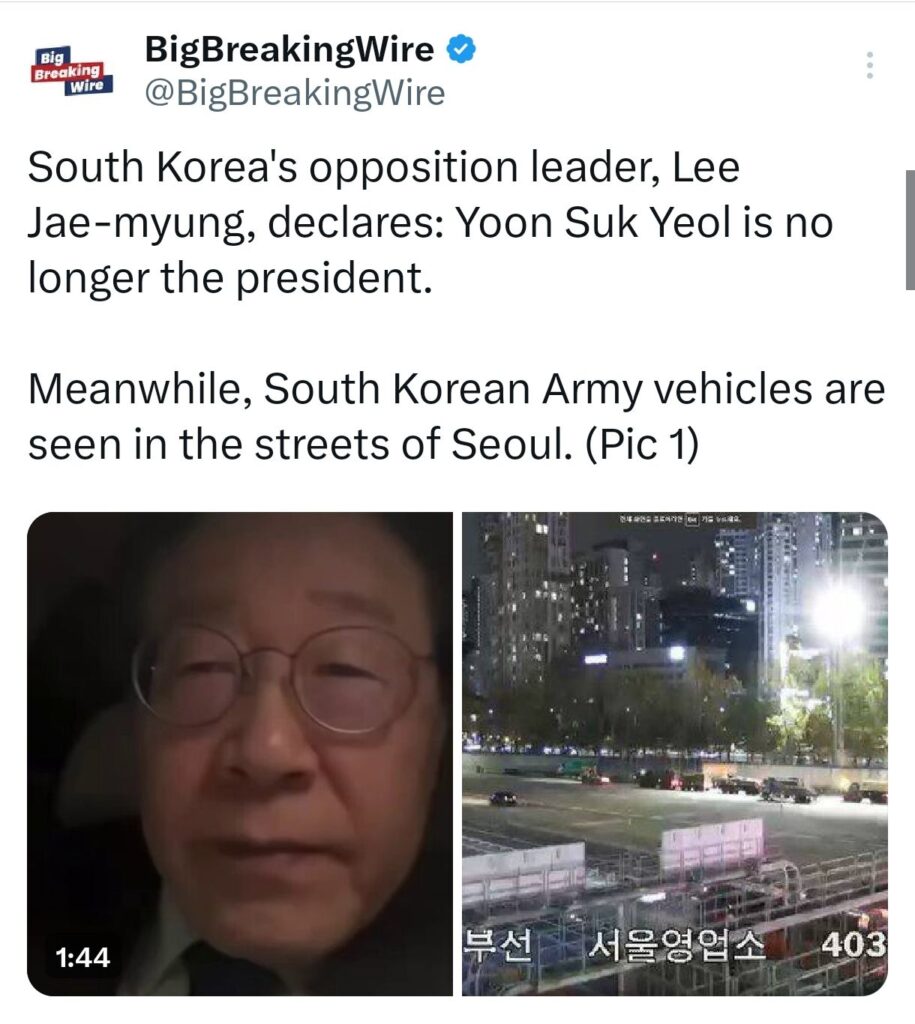
Opposition members are attempting to climb barricades around the Parliament to block President Yoon’s martial law bill. Soldiers are preventing access to the Parliament building.
The South Korean military is currently arresting opposition MPs outside the Parliament. Under South Korean law, martial law can be lifted if a majority of parliament members approve.
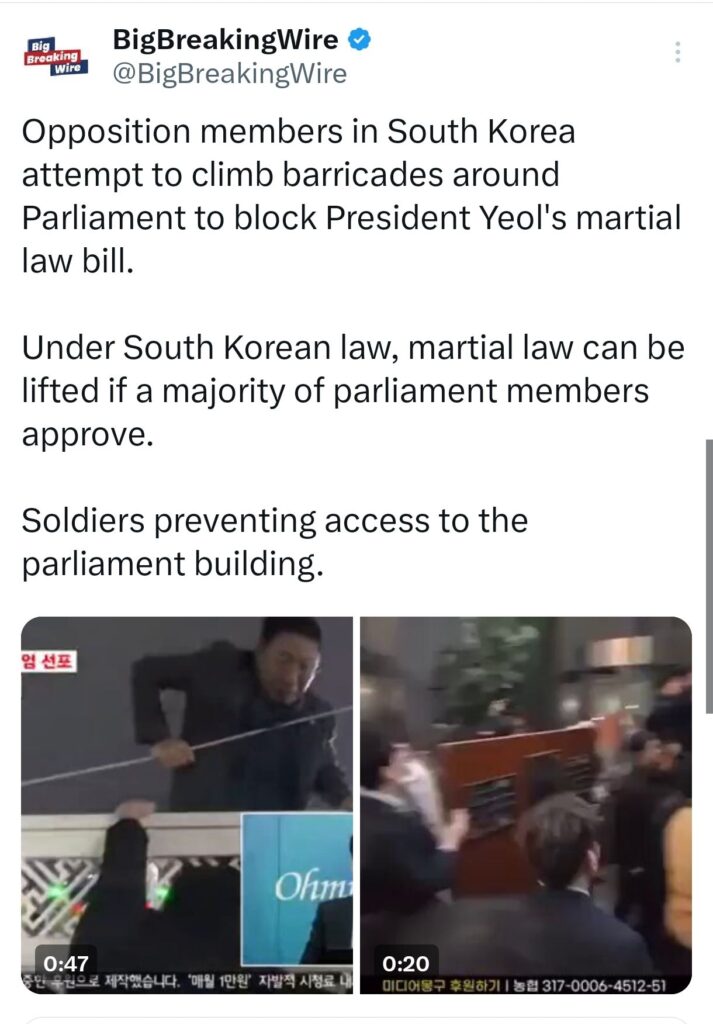
South Korea’s parliament unanimously votes 190-0 to end martial law.
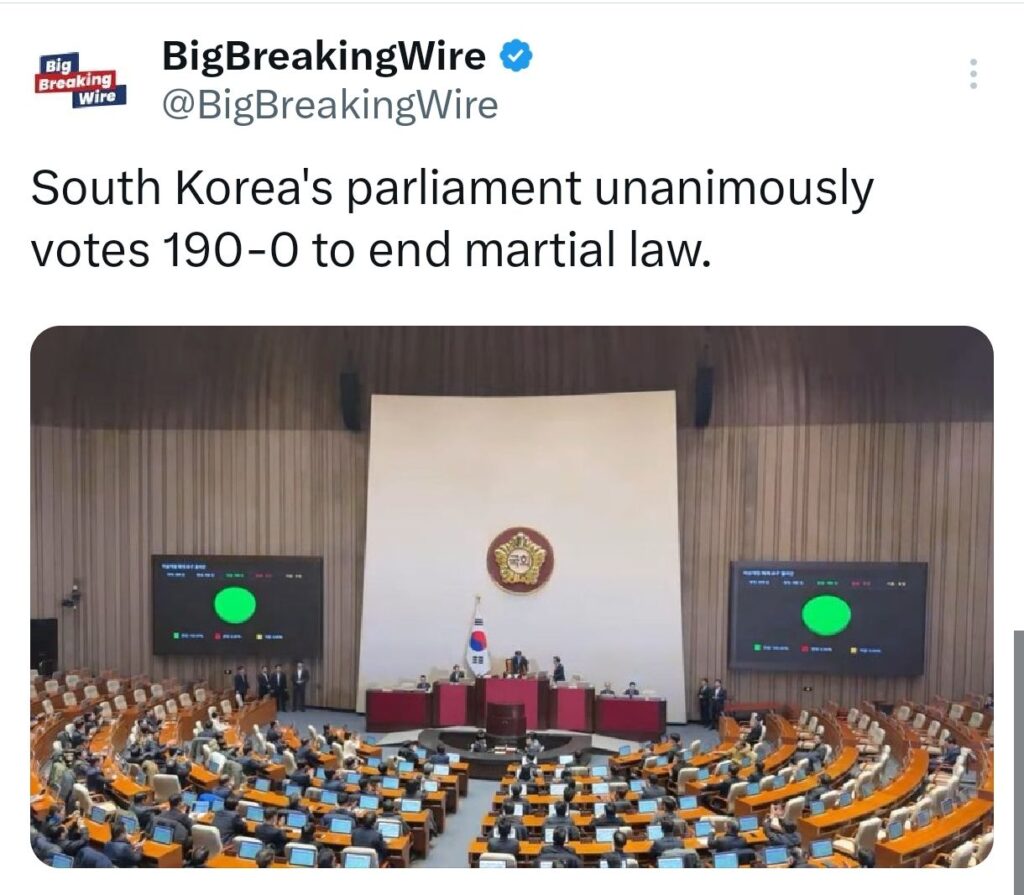
South Korean military personnel began leaving the parliament building after lawmakers passed a resolution to lift martial law. Outside, thousands of protesters gathered, calling for President Yoon’s impeachment. Celebrations followed as soldiers withdrew.
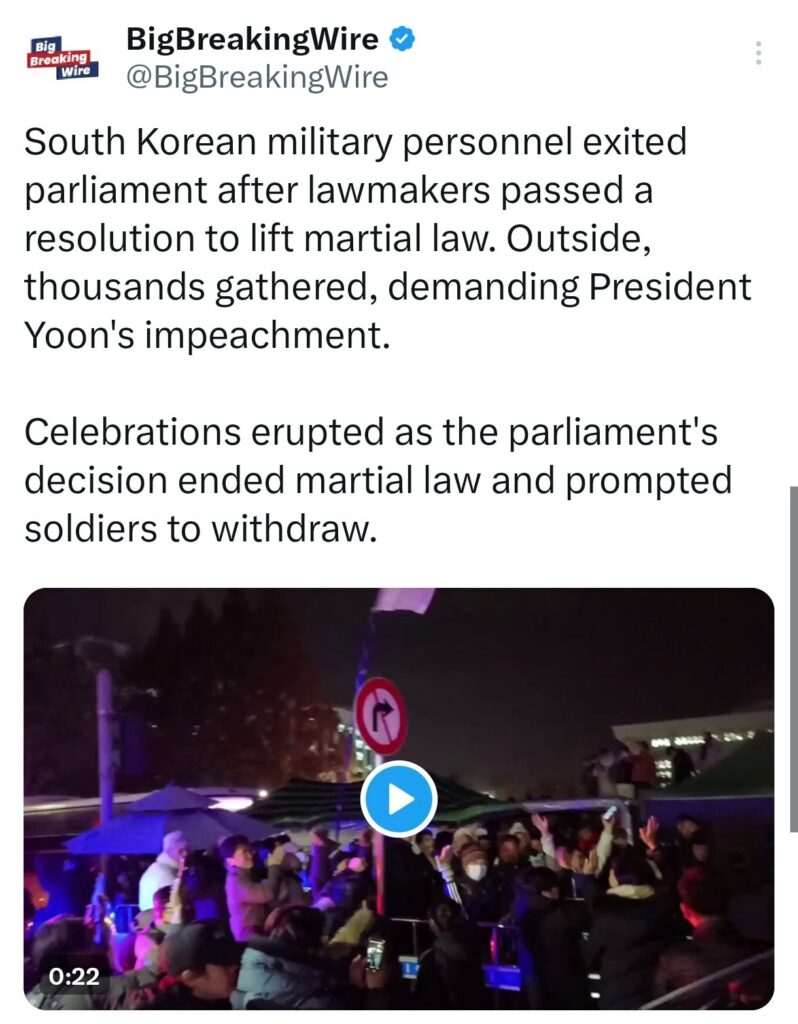
South Korean military stated it will uphold martial law until President Yoon Suk Yeol lifts it, despite Parliament voting to end the declaration. The standoff raises tensions between the government and lawmakers over the controversial measure.
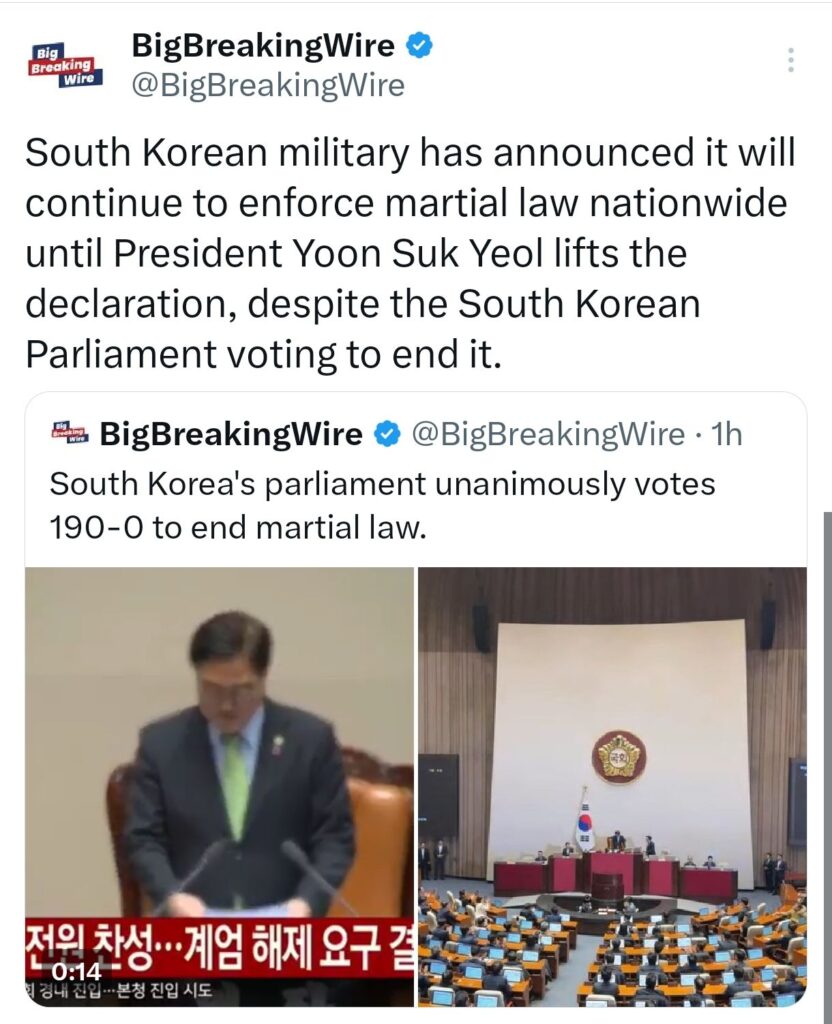
South Korea’s Parliament has issued an official notice to President Yoon Suk Yeol and Defense Minister Kim Yong-hyun, urging them to revoke the martial law declaration announced earlier today by President Yoon.
South Korean President Yoon Suk Yeol has directed troops and police enforcing the recently declared martial law to stand down. He has also announced plans to lift the martial law immediately.
South Korean President Yoon has lifted martial law, prompting the defense ministry to cancel emergency call-ups and send employees home, according to Yonhap.
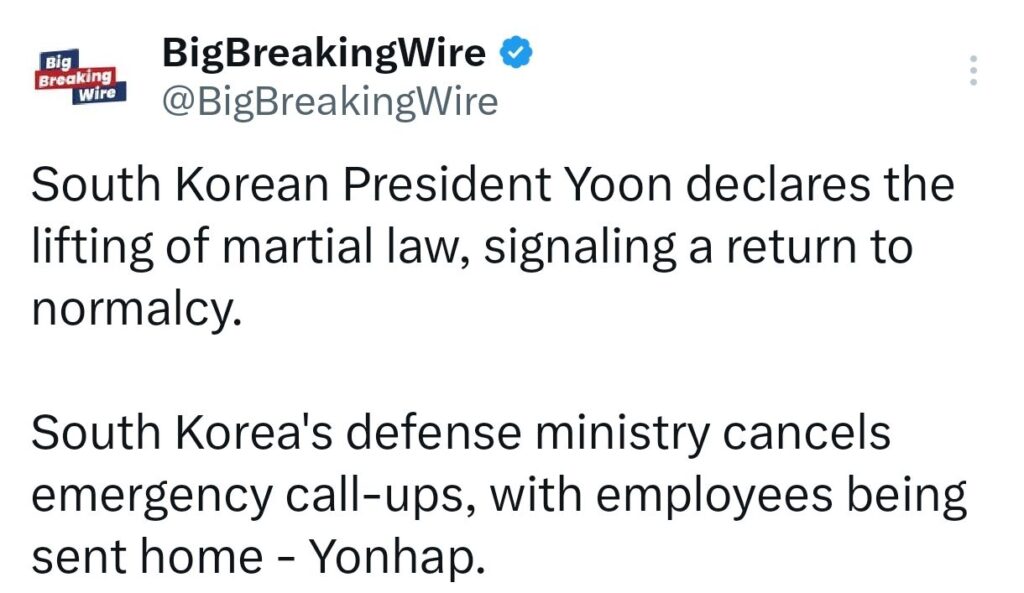
South Korea’s Yoon Faces Impeachment Over Martial Law
Six South Korean opposition parties are set to submit an impeachment bill against President Yoon at 14:40 KST, with a possible vote on December 6th or 7th.
The South Korean Presidential Office has defended the recent martial law, stating that it was within the constitutional framework. They also explained that the timing of the announcement was meant to minimize harm to the economy and people’s lives. The office denied interfering with lawmakers’ access to Parliament.
Following President Yoon’s declaration and reversal of martial law, South Korean assets experienced a selloff, with the Kospi falling nearly 2% and the won hitting a two-year low. Fund managers warn that political instability could lead to a prolonged “Korean Discount,” deterring foreign investment, despite attractive stock valuations. Analysts believe that the selloff could stabilize if the government and the Bank of Korea maintain their commitment to market liquidity.
Bringing you the latest updates on finance, economies, stocks, bonds, and more. Stay informed with timely insights.













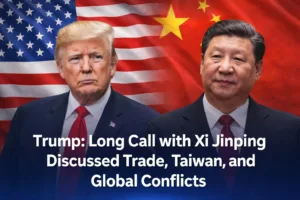



Be First to Comment